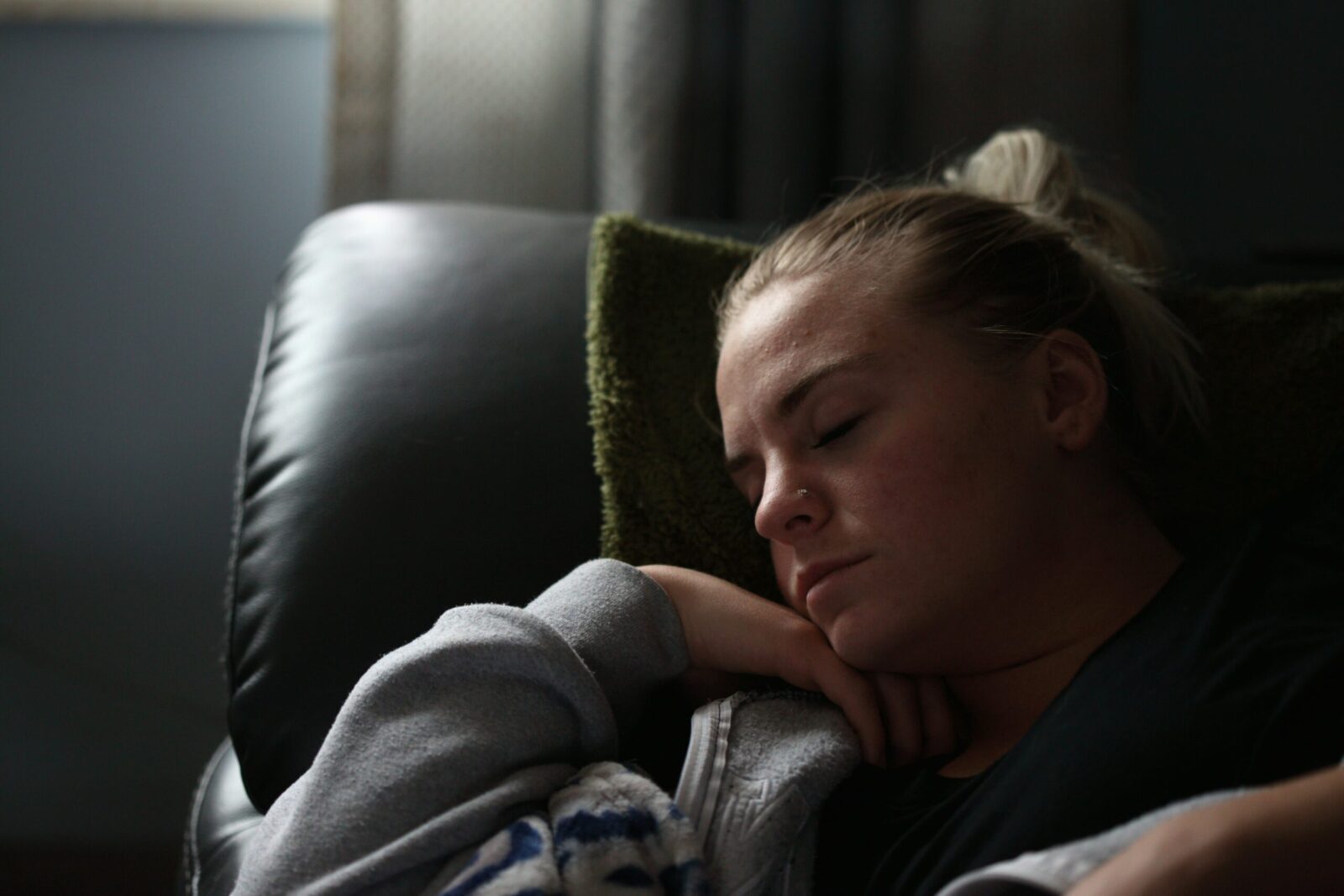Polycystic Ovary Syndrome, or PCOS, is a hormonal condition that affects people with ovaries, most commonly between the late teens and early 30s. It messes with how the ovaries function. In simple terms, the body produces too many androgens, which are hormones typically more dominant in males. This imbalance can cause irregular periods, acne, excess facial or body hair, and trouble with ovulation.
PCOS is more common than most people think. It affects around 1 in 10 women of reproductive age. Despite its impact, many go undiagnosed or misdiagnosed for years.
That’s a problem, because catching PCOS early makes a big difference. It’s not just about managing symptoms like painful periods or skin issues. PCOS is linked to higher risks of type 2 diabetes, heart disease, and fertility problems. The sooner it’s identified, the sooner these risks can be better managed. And for many, that early diagnosis is the first step toward getting their health—and quality of life—back on track.
Irregular or missing periods are often the first red flag, but they’re usually just one piece of a larger hormonal puzzle. The body’s cycle is deeply tied to hormonal balance, so when something’s off—like with polycystic ovary syndrome (PCOS), thyroid issues, or chronic stress—it can show up in unpredictable ways. Skipped periods aren’t just inconvenient. They’re telling you something.
Weight gain, acne, and changes in body or facial hair can also point to hormonal shifts. Often, these symptoms get chalked up to poor habits or genetics, but they’re also common signs the body is reacting to imbalances in insulin, estrogen, or androgen levels. Instead of treating the symptoms individually, smart approaches look at the root cause.
Fertility struggles can be the tipping point that makes someone take their hormone health seriously. Ovulation issues, low egg quality, or irregular cycles can throw off even the most well-timed plans. Behind the scenes, many of these challenges trace back to insulin resistance, inflammation, or disrupted communication between the brain and ovaries.
And then there’s the mental side: mood swings, anxiety, burnout. These aren’t just in your head—they’re often tied to cortisol spikes, roller-coaster estrogen levels, or low progesterone. Understanding the hormonal connection helps demystify what’s going on, and gives people back some control. It’s not about chasing perfect balance. It’s about noticing the patterns and responding intelligently.
Insulin resistance isn’t just a buzzword. For many, it’s the missing piece of the puzzle when trying to understand unexpected weight gain, trouble losing fat, or chronic fatigue. When cells stop responding properly to insulin, the body stores more fat, especially around the belly. Over time, this messes with energy levels and appetite control, making basic weight management harder than it should be.
Then there’s the hormone story. Imbalances in androgens like testosterone or issues with estrogen can throw the entire system off. These hormones don’t just govern things like mood and libido — they also affect how the body stores fat, builds muscle, and processes nutrients. For vloggers documenting fitness, health, or body transformation, talking about hormones has become more than trendy. It’s necessary.
But none of this lives in a vacuum. Genetics do play a role, yes. Some people are born with a higher risk for insulin resistance or hormonal sensitivity. But lifestyle choices — diet, sleep, movement, stress — either pull the trigger or keep things in check. Blaming just genes or just sugar doesn’t cut it anymore. It’s what you do, day in and day out, that shapes the outcome.
Navigating the Emotional Weight of Invisible Conditions
Living with a health issue that isn’t immediately visible can be emotionally exhausting. From the outside, you might look healthy and capable. On the inside, you’re managing pain, fatigue, or hormone-related imbalances that impact nearly every part of your day.
The Stress of Living with an “Invisible” Condition
Invisible health challenges—like endometriosis, PCOS, or hormonal imbalances—often go misunderstood or minimized.
- People may misread your condition as exaggerated or nonexistent
- You may feel pressure to “prove” your pain or justify your symptoms
- This disconnect can lead to self-doubt and emotional burnout
Breaking the Stigma Around Female Health and Fertility
There is still far too much silence around women’s reproductive health. Conditions that affect hormones or fertility are often underdiscussed, even in healthcare settings.
- Society tends to shy away from conversations about cycles, fertility struggles, or pelvic pain
- Women are often expected to bounce back from health setbacks quickly and quietly
- This silence fosters shame or isolation, especially when trying to conceive or explain hormonal shifts
Building a Support System That Actually Supports You
When dealing with an ongoing health issue, your support system can make or break how you cope. The key is seeking support that’s informed, judgment-free, and consistent.
- Talk with friends or loved ones who are willing to listen without trying to fix everything
- Consider seeking care or advice from practitioners who specialize in women’s hormone health
- Online communities curated around specific conditions or shared experiences can also offer valuable connection
For more on how sleep influences hormone balance and recovery, see Sleep and Wellness: Why Women Need Restorative Rest.
Managing PCOS starts with dialing in the basics. Lifestyle changes aren’t a cute extra—they’re the foundation. Cleaning up your diet to cut down on sugar and processed foods helps stabilize insulin. Regular exercise, especially strength training and low-impact cardio like walking or cycling, improves hormone balance. Sleep matters more than people think. PCOS and poor sleep feed off each other. Getting consistent, quality rest isn’t optional.
When lifestyle alone isn’t enough, doctors may turn to medication. Metformin is often used to manage insulin resistance. Some might prescribe spironolactone to help with acne and hair issues. In some cases, hormonal birth control is used to regulate cycles, though it’s more symptom control than solution.
A growing number of people are exploring natural options. Supplements like inositol, vitamin D, and magnesium get attention for their potential to support metabolism, mood, and hormone balance. Acupuncture and herbal medicine also show promise for some, though results vary. Just keep expectations realistic and talk with a health provider who respects both science and alternative care.
Birth control is a hot topic in PCOS circles. Yes, it can regulate periods and clear up skin. But it doesn’t fix the root cause. For many, it’s a temporary patch, not a long-term plan. Knowing the role it plays—and its limits—helps you decide if it’s the right tool for your path.
Navigating your health starts with speaking up. Too often, people sit through doctor’s appointments nodding, taking what they’re told at face value. But here’s the deal: your doctor works for you. Asking clear questions like, “What else could this be?” or “What are the side effects?” isn’t being rude — it’s being smart. You don’t need to be a medical expert, but you do need to be your own advocate.
And if something doesn’t seem right, get a second opinion. It’s not disloyal or dramatic. Good doctors welcome it. Sometimes a fresh set of eyes can catch something missed. Especially in complex cases or when you’re handed a big diagnosis, two perspectives can lead to better decisions.
Keep track of symptoms too. Write down what you’re feeling, when it happens, and any triggers you notice. Patterns matter. Coming to your appointment with a simple log can speed up the process and provide a clearer picture. Healthcare works better when you walk in informed and ready.
PCOS doesn’t come with a one-size-fits-all fix, and that’s part of what makes it so frustrating. But here’s the upside: it’s manageable. With the right mix of solid information, steady self-care, and a bit of patience, things get better. That might mean dialing in your nutrition, finding a fitness routine that actually feels good, or working closely with a doctor who listens.
The other big piece? Support. You’re not meant to figure this out alone. Whether it’s a friend who checks in, a support group that gets it, or an online community sharing tips that work, having people in your corner matters more than most admit.
You don’t have to explain away your fatigue or second-guess your symptoms. What you’re feeling is real. And while the path forward isn’t always smooth, you can build a life around what works for you. You can thrive—with the right tools, the right care, and people who’ve got your back.




